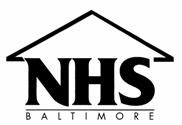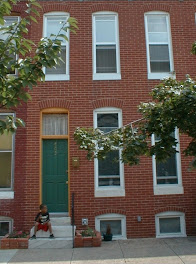By: Raevyn Jones, Marketing Coordinator, NHS of Baltimore
When it comes to holidays many of us sometimes get above ourselves with gift-giving and it takes a hefty toll on our budgets. Many people have a crazy misconception that its “priceless” to create a picture perfect holiday experience. This thinking will put a strain on your budget and the last thing you want to do is start off a new year with your finances in shambles.
All of the financial troubles that come with the holidays can be avoided if you think with your head and not your heart throughout the process. A significant step is making sure that all of your major bills are paid before you start holiday shopping. Things like rent or mortgage, gas, electric, water, and phone bills should be prioritized over a hefty price tag on a gift you brought. Also things like food and any medication you may need should also be kept in mind.
One major “no-no” when it comes to the holidays is spending important bill money because you are depending on a monetary gift that you think you are not guaranteed to get. The first rule of being financially fit is to be smart with your money.
There are some extra things that we use in our day-to-day lives that we may be able to part with for a month. These things include cable, high speed internet, dining out, and monthly memberships and subscriptions. With innovations like Netflix and smartphones, a month without cable and desktop internet is not so bad.
Another way to save money during the holiday season is to make an agreement with friends and family to exchange gifts after Christmas. This may take away some excitement, but the huge savings will be helpful to your pockets.
Most of all we need to all keep in mind that the important thing about the holidays is to create memories that will last a lifetime, not who is giving the best gift. It should not be hard for anyone to understand that we have all been affected in some way by the economy.
With that said,
Happy Holidays to you and your family from NHS of Baltimore!
Tuesday, November 30, 2010
Tuesday, November 16, 2010
Being Prepared When "Life Comes At You Fast..."
By: Jacqueline Wilson, Loan Processor, NHS of Baltimore
State Farm insurance company has a commercial that depicts mayhem coming upon a person with a slogan “life comes at you fast.” When we see this commercial we can relate because we all have experienced unexpected mishaps from time to time. We try to have “rainy day funds" but we all know that these are very hard economic times and the amounts put away for the rainy day funds seem to get smaller and smaller. As a result, the extra funds to resolve these emergencies and continue to function are not available.
Such mishaps as when the car gets towed and you need it right away to get to work, or the car dies never to be revived and a down payment is needed to purchase a new one. Perhaps you receive a large utility bill or some other unexpected event occurs, there are no savings and the regular bills have to get paid, there is no extra. These are the unexpected occurrences that cause people to consider payday loans as a way out because “life indeed does come at you fast”.
In the past, the payday loan companies went unnoticed and this industry really grew. Nationwide there are 25,000 of these companies ranging from small mom and pop shops to large chains. In Missouri alone there are about 1500 payday loan stores and many of the loans have an 422% APR. Check into Cash in Cleveland Tennessee has an APR of a massive 459 %. What this means is that the consumer writes a check for $300.00 and actually gets $255.00 in cash, the difference of $45.00 goes to fees, it is reported that some of these loans are flipped as many as 8 times and escalate from $325.00 to as high as $793.00 before it is paid. In California alone (a place that has been hit hard by the recession) consumers borrow 2.5 billion dollars a year from payday loan lenders. In an attempt to curve these practices some credit unions and lenders have begun to offer small dollars loans at annual rates as low as 12%.
Taking into account the numbers stated above, the residents of Baltimore City that utilize payday loan services can really appreciate the Borrow and Save Program which is offered by Neighborhood Housing Services of Baltimore, Inc., The program was originally offered in the East Baltimore region – however, due to high demand the program has now been expanded to accomodate consumers citywide. The program was launched in August 2009 to help borrowers break the perpetual short-term borrowing cycle, establish healthy banking relationships, gain personal money management skills, and learn the benefit of savings and asset building.
The program provides loans between $ 300.00 and $ 1,000.00 with repayment terms of six months to a year at an APR of 7.99%. Borrowers who currently do not have a banking relationship are required to open a bank or credit union account to receive the loan. Borrowers are also expected to take a financial literacy course, this course is offered free of charge by NHS of Baltimore in an effort to educate consumers so that they do not have to resort to loans at all.
For information about the Borrow and Save program, please contact Jacqueline Wilson at 410-327-1200 ext. 117.
State Farm insurance company has a commercial that depicts mayhem coming upon a person with a slogan “life comes at you fast.” When we see this commercial we can relate because we all have experienced unexpected mishaps from time to time. We try to have “rainy day funds" but we all know that these are very hard economic times and the amounts put away for the rainy day funds seem to get smaller and smaller. As a result, the extra funds to resolve these emergencies and continue to function are not available.
Such mishaps as when the car gets towed and you need it right away to get to work, or the car dies never to be revived and a down payment is needed to purchase a new one. Perhaps you receive a large utility bill or some other unexpected event occurs, there are no savings and the regular bills have to get paid, there is no extra. These are the unexpected occurrences that cause people to consider payday loans as a way out because “life indeed does come at you fast”.
In the past, the payday loan companies went unnoticed and this industry really grew. Nationwide there are 25,000 of these companies ranging from small mom and pop shops to large chains. In Missouri alone there are about 1500 payday loan stores and many of the loans have an 422% APR. Check into Cash in Cleveland Tennessee has an APR of a massive 459 %. What this means is that the consumer writes a check for $300.00 and actually gets $255.00 in cash, the difference of $45.00 goes to fees, it is reported that some of these loans are flipped as many as 8 times and escalate from $325.00 to as high as $793.00 before it is paid. In California alone (a place that has been hit hard by the recession) consumers borrow 2.5 billion dollars a year from payday loan lenders. In an attempt to curve these practices some credit unions and lenders have begun to offer small dollars loans at annual rates as low as 12%.
Taking into account the numbers stated above, the residents of Baltimore City that utilize payday loan services can really appreciate the Borrow and Save Program which is offered by Neighborhood Housing Services of Baltimore, Inc., The program was originally offered in the East Baltimore region – however, due to high demand the program has now been expanded to accomodate consumers citywide. The program was launched in August 2009 to help borrowers break the perpetual short-term borrowing cycle, establish healthy banking relationships, gain personal money management skills, and learn the benefit of savings and asset building.
The program provides loans between $ 300.00 and $ 1,000.00 with repayment terms of six months to a year at an APR of 7.99%. Borrowers who currently do not have a banking relationship are required to open a bank or credit union account to receive the loan. Borrowers are also expected to take a financial literacy course, this course is offered free of charge by NHS of Baltimore in an effort to educate consumers so that they do not have to resort to loans at all.
For information about the Borrow and Save program, please contact Jacqueline Wilson at 410-327-1200 ext. 117.
Subscribe to:
Comments (Atom)




+for+blog.jpg)
.jpg)
